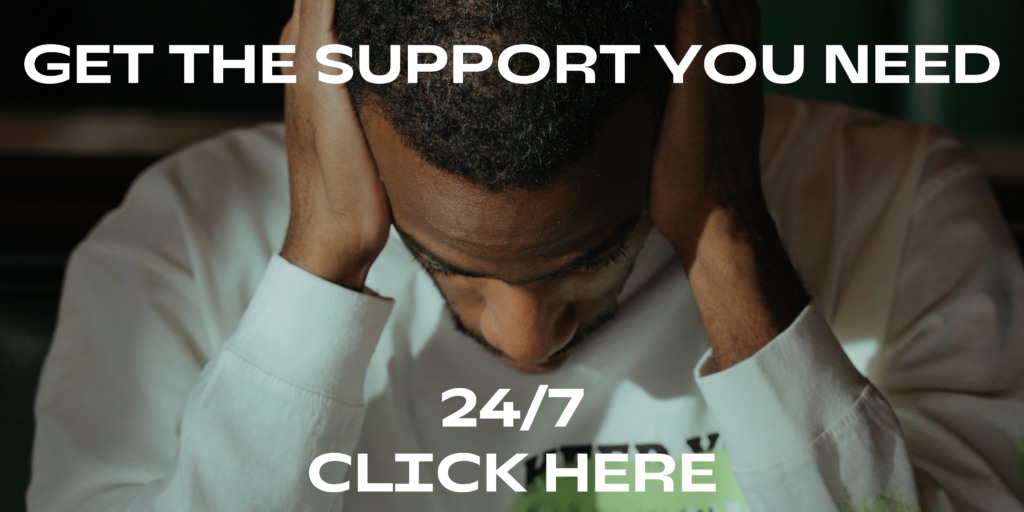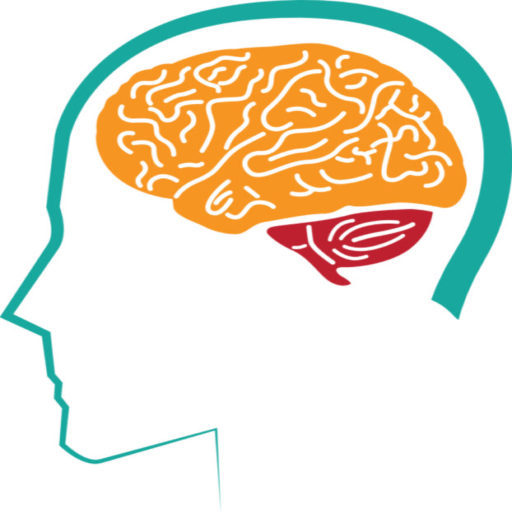Misconceptions surrounding mental health continue to persist, contributing to stigma and hindering individuals from seeking the help they need. In this in-depth exploration, we aim to dispel common misunderstandings, provide insights into the truths of treatment and recovery, and shed light on the pervasive impact of misinformation on both individuals and society.
The Complexity of Mental Health
Mental health, just like physical health, is a vital aspect of our overall well-being. It encompasses a wide range of conditions and experiences, from anxiety and depression to bipolar disorder and schizophrenia. Despite the prevalence of mental health issues, misunderstandings often cloud our understanding of these conditions.
Clarifying Misunderstandings
Misunderstanding 1: Mental Illness is a Sign of Weakness
Myth: Mental illness is not a reflection of one’s strength or character. It is a complex interplay of genetic, biological, environmental, and psychological factors. Just as no one is immune to physical illnesses, mental health conditions can affect anyone.
Misunderstanding 2: Mental Health Issues Are Rare
Myth: Mental health issues are far more common than one might think. According to the World Health Organization (WHO), approximately one in four people globally will experience a mental health disorder at some point in their lives. It is not a rare or isolated phenomenon.
Misunderstanding 3: People with Mental Illness Are Violent
Myth: A pervasive stereotype perpetuated by media portrayals links mental illness with violence. In truth, individuals with mental health conditions are more likely to be victims of violence than perpetrators. Most individuals living with mental illness are non-violent and pose no threat to others.
Misunderstanding 4: Mental Illness is Just “In Your Head”
Myth: Mental illnesses involve tangible changes in brain chemistry and functioning. They are not mere figments of imagination, nor can they be overcome solely through willpower or positive thinking. These conditions are real and merit professional attention and care.
Misunderstanding 5: Medication is the Only Solution
Myth: While medication can be an essential component of treatment for some mental health conditions, it is by no means the sole solution. Therapies, lifestyle changes, and social support play equally significant roles in the journey to recovery.
The Truth About Treatment and Recovery
Misunderstanding 1: Mental Health Treatment is Always Long-Term
Myth: The duration of mental health treatment varies widely depending on the individual and their specific condition. Some may require short-term interventions, while others benefit from ongoing support. Recovery is achievable and unique to each person.
Misunderstanding 2: Once Diagnosed, You Can Never Fully Recover
Myth: With appropriate treatment, support, and self-care, many individuals diagnosed with mental health conditions can experience significant recovery and lead fulfilling lives. A diagnosis does not define one’s entire existence.
Misunderstanding 3: Seeking Help is a Sign of Weakness
Myth: Seeking help for mental health concerns is a courageous and proactive step towards well-being. It requires acknowledging one’s challenges and taking action to address them. It is a sign of strength, not weakness.
Misunderstanding 4: Therapy is Only for Severe Cases
Myth: Therapy is a valuable resource for individuals dealing with a wide range of mental health concerns, from daily stressors to more severe conditions. It offers coping strategies, promotes emotional well-being, and enhances resilience.
Misunderstanding 5: Mental Health Services Are Unaffordable
Myth: Affordable mental health services and resources are available to individuals seeking support. Community clinics, helplines, online support groups, and sliding-scale fees at therapy practices are some of the options accessible to those with varying financial situations.
The Impact of Misinformation
Delayed Treatment
Misinformation often leads individuals to delay seeking help for their mental health issues. Fear of judgment, discrimination, or misunderstanding can deter timely intervention, potentially exacerbating the condition and reducing the chances of successful treatment.
Isolation and Loneliness
Stigma and misunderstandings about mental health can isolate individuals, making them feel alone and disconnected from their support networks. Social isolation can exacerbate symptoms and hinder recovery.
Self-Stigma
Internalizing negative stereotypes associated with mental illness can lead to self-stigma. This self-criticism erodes self-esteem and can hinder progress in treatment. Overcoming self-stigma is often a crucial part of the recovery process.
Employment and Educational Discrimination
Stigmatizing attitudes in workplaces and educational institutions can lead to discrimination against individuals with mental health conditions. This discrimination may include the denial of opportunities, exclusion, or unjust treatment.
Policy and Funding Challenges
Misinformation can influence policymakers’ decisions, affecting funding and resources allocated to mental health services. Inaccurate beliefs about the prevalence and nature of mental health conditions can hinder the development of effective policies and the allocation of adequate funding.
Challenging Misconceptions and Fostering Understanding
Debunking misunderstandings and promoting accurate information about mental health is essential for reducing stigma, increasing early intervention, and fostering understanding. Mental health conditions are common, and recovery is possible with the right support and treatment.
How Can We Be Allies and Advocates?
- Educate Yourself: Take the initiative to learn about different mental health conditions, their symptoms, and available treatments. Recognize and challenge your misunderstandings.
- Listen Without Judgment: Create a safe and non-judgmental space for individuals to share their experiences. Active listening without offering unsolicited advice or judgment can provide immense support.
- Speak Up Against Stigma: Challenge and confront stigmatizing language or behavior when you encounter it. Be an advocate for respectful and inclusive language surrounding mental health.
- Show Empathy and Support: Express empathy and support for those living with mental illness. Let them know that you care about their well-being and are there to offer assistance if needed.
- Promote Mental Health Awareness: Participate in mental health awareness campaigns and events. Share accurate information and resources to help educate others and reduce stigma in your community.
- Encourage Seeking Help: Encourage individuals who may be struggling with their mental health to seek professional help. Offer to assist them in finding appropriate resources and treatment options.
- Normalize Conversations About Mental Health: Openly discuss mental health in your social circles. Normalizing conversations about mental health can make it easier for individuals to seek help and share their experiences.
In Conclusion
Breaking the stigma surrounding mental illness is essential for the well-being of individuals and society as a whole. Common misunderstandings and stereotypes can perpetuate discrimination, isolation, and delayed treatment. As allies and advocates, we can play a crucial role in challenging these misunderstandings, providing support, and promoting mental health awareness.
Understanding that mental illness is not a sign of weakness, that it is not rare, and that it is not synonymous with violence is a fundamental step in reducing stigma. Recognizing the impact of stigma on delayed treatment, isolation, and discrimination highlights the urgency of our efforts.
By educating ourselves, listening without judgment, speaking up against stigma, showing empathy and support, promoting mental health awareness, encouraging seeking help, and normalizing conversations about mental health, we can contribute to a more inclusive and compassionate society—one where individuals living with mental illness can
seek help without fear, find understanding, and embark on their journey to recovery with dignity and hope.
The Power of Accurate Information
Accurate information is the cornerstone of dispelling myths and misconceptions about mental health. When we understand the realities of mental health conditions, we can create a more supportive and compassionate society. Let’s delve deeper into the impact of accurate information on individuals and communities.
Empowering Individuals
Accurate information empowers individuals to take control of their mental health. When people are informed about the signs and symptoms of mental health conditions, they can recognize when they need help and seek it proactively. This early intervention can significantly improve outcomes.
Reducing Stigma
Stigma often arises from a lack of understanding and misconceptions. By promoting accurate information, we can reduce the stigma associated with mental illness. When society views mental health conditions through a more informed lens, individuals are less likely to face discrimination or prejudice.
Encouraging Supportive Communities
Communities that are well-informed about mental health are more likely to be supportive. Friends, family members, and colleagues who understand the challenges faced by those with mental health conditions can offer empathy, support, and encouragement.
The Role of Advocacy
Advocacy plays a pivotal role in debunking myths and fostering understanding. By advocating for mental health awareness and policy changes, we can create a more inclusive and compassionate society. Here are ways in which advocacy can make a difference:
Policy Reform
Advocacy efforts can influence policymakers to reform mental health policies. This includes increasing funding for mental health services, improving access to care, and implementing anti-discrimination measures.
Educational Campaigns
Advocacy organizations often run educational campaigns to raise awareness about mental health. These campaigns can provide accurate information and resources to the public, dispelling myths and encouraging empathy.
Promoting Research
Advocates can push for more research into mental health conditions. This research leads to a better understanding of the causes and treatments of mental illnesses, ultimately challenging misconceptions.
The Global Impact
The impact of debunking mental health myths extends far beyond individual lives; it has global implications. Here are some ways in which dispelling myths about mental health can benefit societies worldwide:
Improved Public Health
A society that understands mental health is better equipped to address mental health issues as public health concerns. This can lead to improved overall well-being and reduced healthcare costs.
Enhanced Productivity
Workplaces that promote mental health awareness and support employees with mental health conditions often experience increased productivity. Employees who feel understood and supported are more likely to thrive in their roles.
Stronger Communities
Communities that prioritize mental health are more cohesive and supportive. The social fabric of these communities is strengthened as individuals come together to provide assistance and resources to those in need.
The Journey Ahead
Debunking mental health myths is an ongoing process. It requires collective efforts from individuals, communities, and societies as a whole. By continuing to educate ourselves, advocate for change, and promote understanding, we can create a world where mental health is viewed with compassion and empathy.
In Conclusion
Breaking the stigma surrounding mental illness is essential for the well-being of individuals and society as a whole. Common misunderstandings and stereotypes can perpetuate discrimination, isolation, and delayed treatment. As allies and advocates, we can play a crucial role in challenging these misunderstandings, providing support, and promoting mental health awareness.
Understanding that mental illness is not a sign of weakness, that it is not rare, and that it is not synonymous with violence is a fundamental step in reducing stigma. Recognizing the impact of stigma on delayed treatment, isolation, and discrimination highlights the urgency of our efforts.
By educating ourselves, listening without judgment, speaking up against stigma, showing empathy and support, promoting mental health awareness, encouraging seeking help, and normalizing conversations about mental health, we can contribute to a more inclusive and compassionate society—one where individuals living with mental illness can seek help without fear, find understanding, and embark on their journey to recovery with dignity and hope.
References
- World Health Organization. (2021). Mental disorders. https://www.who.int/news-room/fact-sheets/detail/mental-disorders
- Thornicroft, G., Rose, D., Kassam, A., & Sartorius, N. (2007). Stigma: ignorance, prejudice or discrimination? The British Journal of Psychiatry, 190(3), 192-193. https://doi.org/10.1192/bjp.bp.106.025791
- Corrigan, P. W., Druss, B. G., & Perlick, D. A. (2014). The Impact of Mental Illness Stigma on Seeking and Participating in Mental Health Care. Psychological Science in the Public Interest, 15(2), 37-70. https://doi.org/10.1177/1529100614531398

